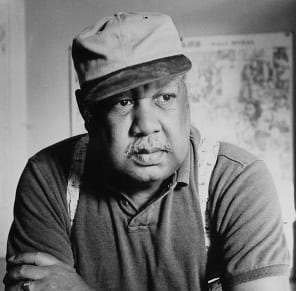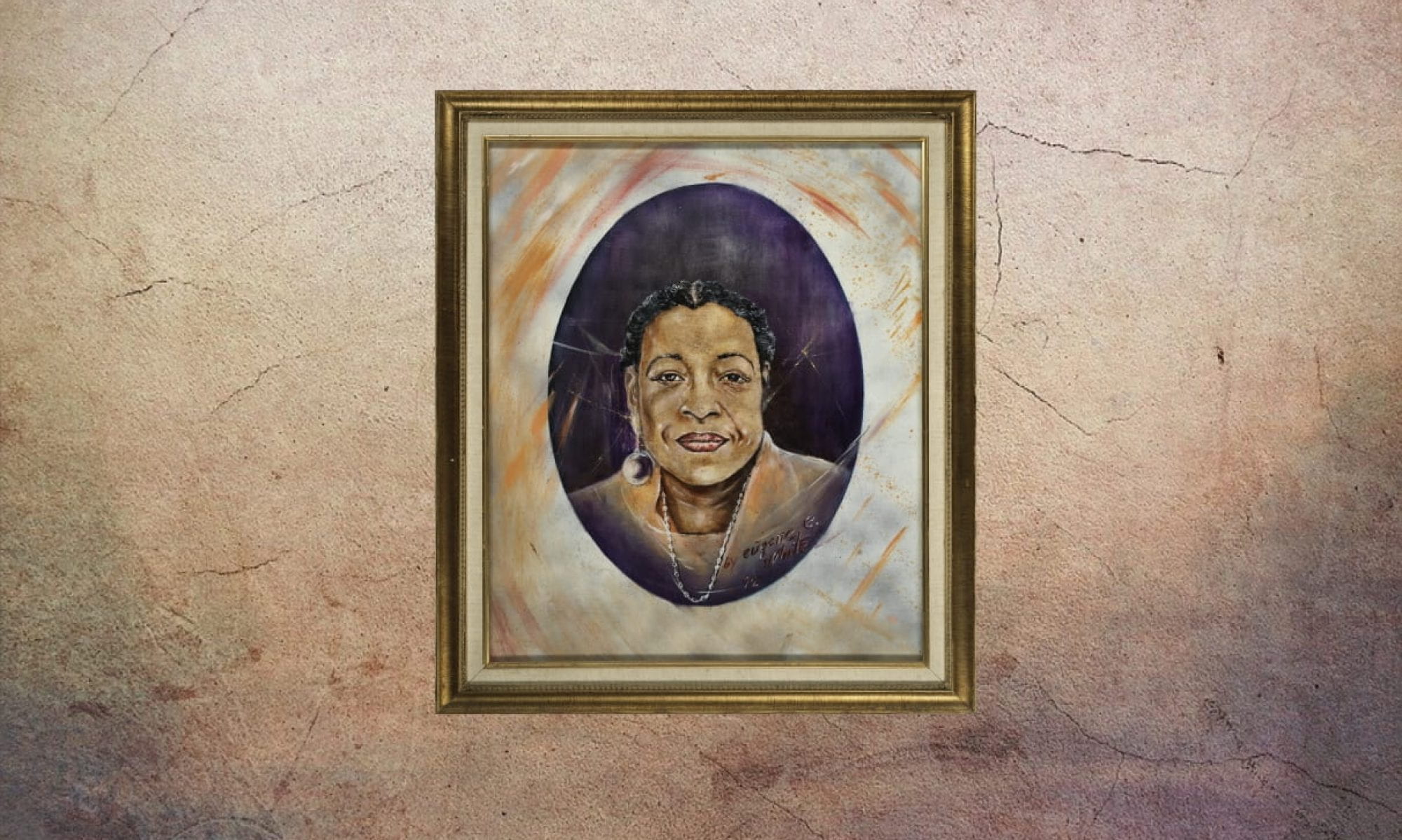
Ernest J. Gaines was born on January 15, 1933. His childhood in the South inspired many of his well-known novels including The Autobiography of Miss Jane Pittman (1971) and A Lesson Before Dying (1993). His distinguished career as a novelist has earned him various accolades. He received the Guggenheim Foundation Fellowship in 1972, the MacArthur Foundation Fellowship in 1993, and the National Book Critics Circle Award for Fiction in 1999. Moreover, throughout his career, Gaines has been an active philanthropist, recognizing aspirational writings from young black prodigy authors and awarding them with financial scholarship.
Gaines spent his childhood on his family’s River Lake Plantation in Oscar, Louisiana. He and his twelve siblings were raised mostly by his aunt. As a boy, Gaines would spend half the year working in the fields, and the other half going to school. During this time, he formed an appreciation for the tough women who lived in his community.
In 1948, fifteen year old Gaines moved to Vallejo, California, to live with his mother and stepfather. At St. Augustine’s High School, he developed a passion for learning and reading. Because of the lack of African American representation in the books he read, he was never able to truly “see himself” in the predominantly white narratives. His time as a teenager during the civil rights movement inspired his writing and motivated him to write stories inspired by the black culture which he grew up in.
After graduating high school in 1951, Gaines attended Vallejo Junior College in 1953, and was drafted into the army upon graduation. After serving two years, he earned a bachelor’s degree in literature at San Francisco State University. He published “The Turtles,” a short story in SFSU’s magazine, Transfer. This narrative later earned him his first substantial writing recognition: Stanford’s Wallace Stegner Creative Writing Fellowship in 1957.
After spending many years in Stanford’s classrooms, Gaines was finally rewarded with the success of one of his most famous novels, The Autobiography of Miss Jane Pittman. This novel, known for narrating nearly one-hundred years of a black woman’s experiences, was drawn from the strong women who ran his community.
Steadily increasing in his reputation as a young novelist, Gaines flew back and forth between the Bay Area and Louisiana. While he was influenced by San Francisco’s bohemian era and his time abroad as a soldier, ultimately he found that his best writing came from reflecting on his time and the history of the south. In an interview, Gaines once confessed: “I can’t write about San Francisco! But I can write about that little postage stamp of land in Louisiana” (“Reader Resources”). Nevertheless, his experience as an African American man living in San Francisco during the Black Power movement gave him a different perspective in his writing.
After having received the Guggenheim Foundation fellowship in 1972 for In My Father’s House (1978) and A Gathering of Old Men (1983), Gaines, like fellow literary master James Baldwin, was condemned for not being much of an activist or a radical. The Black Panther Party even criticized him for not showing enough black pride in his works, but in Gaines’s eyes, he extended the message of the black community through his books. In Conversations with Ernest Gaines he was quoted saying that “When Bull Connor turned the hoses on the marchers, I just said to myself, ‘write a better paragraph.’” This is not to say that he was uncaring about the rights of his community—not in the least—it was just that for Gaines, his power to shape a movement lay in the power of his pen.
From the 1970s to the 1990s Gaines would continue to fly back and forth between the Bay Area and Louisiana, until he met his wife, Dianne Saulney in 1993. After deciding to settle down, Gaines began teaching at the University of Louisiana, Lafayette in 1983, and was a Writer-in-Residence at the University from 1981 to 2004. Living and teaching in Louisiana, Gaines wrote his most successful book, A Lesson Before Dying, which has been nominated for a Pulitzer Prize in fiction and won the National Book Critics Circle Award.
Today he and his wife live on a six-acre estate in the same town where he grew up. He has restored his old schoolhouse, chapel, and his family cemetery of five generations. In 2000, Gaines was named a Chevalier of France’s Order of Arts and Letters, and in 2013 Gaines was awarded the National Medal of Arts.
In 2007, Gaines and his wife established, with generous donations from the Baton Rouge Foundation, the Ernest J. Gaines Award for Literary Excellence to inspire, recognize, and honor young African American authors in fiction. Gaines additionally donates, with the help of the Baton Rouge Foundation donors, to various schools in and around Baton Rouge County. In his latest work The Tragedy of Brady Sims, he writes of “the painful story of a man who tries to keep the peace in a racially divided town by enforcing his own brand of justice.” Gaines continues to write from a thought-provoking perspective and remains a highly influential author.
— Licette Renteria, Meghan Grant, and Phia Rau Halleen
Works Cited
Bridges, Larry. “A Conversation with Ernest J. Gaines.” 2018.
“Ernest J. Gaines.” Lizzie Skurnick Books. 2017.
“Ernest J. Gaines.” Know Louisiana. 2018.
“Ernest J. Gaines Biography” Academy of Achievement. 6 Nov 2017.
Gaines, Ernest J., and John Lowe. Conversations with Ernest Gaines. University Press of Mississippi. 1995.
“Reader Resources: A Lesson Before Dying.” National Endowment for the Arts. 2018.
Tolly, Victor. “Gaines, Ernest James (1933- ).” The Black Past: Remembered and Reclaimed. 2018.
